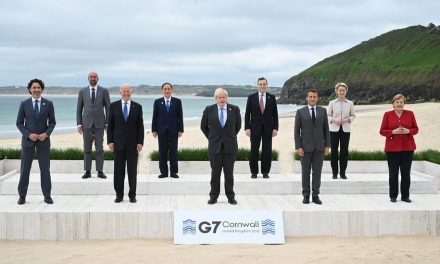U.S. stock futures were surging on Monday after president Donald Trump agreed not to impose new tariffs on Chinese exports to the country in an attempt to restart trade talks.
The benchmark Dow Jones Industrial Average futures rose 265 points, implying a 260-point gain during the Monday’s open. The S&P 500 and the NASDAQ-100’s futures also rose sharply.
Moreover, chipmaker shares significantly increased. Skyworks Solutions rose 7.2% while Huawei supplier Micron Technology climbed 6.4%. Qualcomm shares advanced 5.7%, and Broadcom went up 4.7%. Similarly, FedEx and Apple also gained over 2% increase each.
Managing Director of KKT Financial, LLC, Daniel Deming, said that “a great deal of bearishness in sentiment headed into the meeting” was perceived. He added that several market observers were reducing any possible changes in the narrative, indicating that the risk is directed to the downside.
Because of the positive gains, Wall Start is set on a good start for the second half of 2019, following a successful first half. Likewise, the S&P 500 improved over 17% to kick start 2019, marking its biggest first half in the past 20 years or so.
The surge is believed to be the results of stocks improvement in June after a dry performance in May. The Dow climbed 7.2%, its highest gain for June since 1938. Meanwhile, the S&P 500 advanced 7.9% in June, notching its best performance for that month since 1955.
On Saturday, President Trump and President Xi Jinping of China have agreed on not imposing additional tariffs on Chinese and U.S. goods after a sideline meeting during the G-20 summit held in Osaka, Japan. According to Xinhua, a Chinese state-run press agency, the two leaders settled into an agreement to resume trade talks based on equality and mutual respect.
President Trump said that the agreement during the bilateral meeting will mitigate limitations imposed on U.S. companies from trading products with China’s biggest telecommunications company, Huawei. Earlier this year, the U.S. government banned companies from marketing products to Huawei, with concerns over national security as one of the main reasons.
Investors were anxiously looking forward to the meeting as they are eager to know if the conflict between the two countries would continue or come into an end and restart the trade negotiations.
Chetan Ahya, the Chief Economist and Global Head of Economics of the multinational investment bank Morgan Stanley, explained the bilateral meeting’s result as “an uncertain pause. ” According to Ahya, there’s no rapid growth and still no apparent path of a comprehensive agreement.
American financial analyst and National Economic Council’s director, Larry Kudlow, stated on Fox News that President Trump did not grant Huawei “general amnesty.” He also said that there’s no timetable as to when the deal will be finalized. Kudlow’s comments added to the uncertainties surrounding the U.S. and China trade relations.
According to the editor of The Bear Traps Report, Larry McDonald, the demoralizing vagueness on the real state of U.S.-China trade relations will continue to depress the expectancy on corporate earnings.
McDonald added that chief financial officers cannot create decisions when uncertainties are surrounding the market. He stated that the rally is a “screaming sell.”
The S&P 500’s calendar second-quarter earnings are anticipated to decline on a year-over-year basis, based on data from FactSet. Analysts also decreased their forecast on third-quarter earnings to demonstrate a contraction from last year since profit anticipations for multinationals that have involvements with China have become bitter.
For more than a year, the U.S. and China were facing a trade conflict. The U.S. imposed tariffs on over $250 billion Chinese imports. In response, China retaliated by imposing levies on U.S. products.















